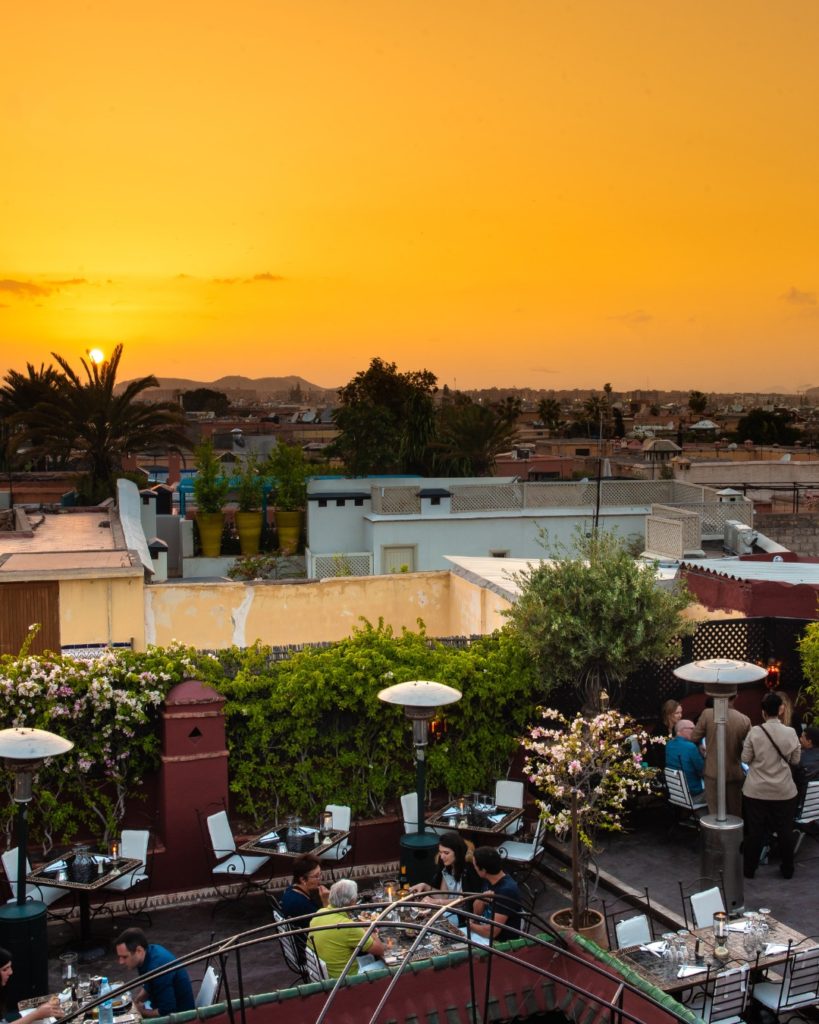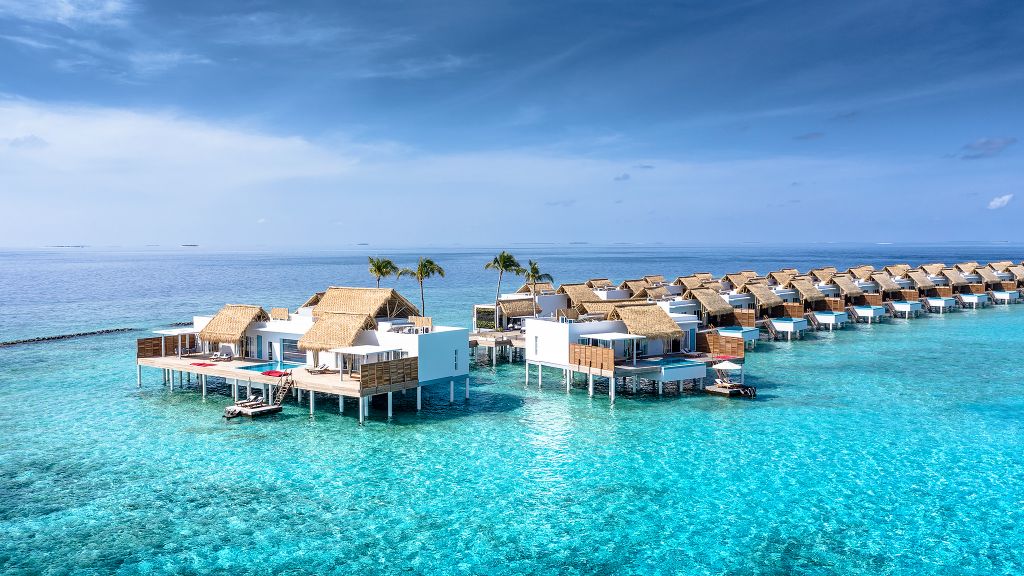Eco-labels certifying hotels’ commitment to sustainability
Discover the essential eco-labels for hotels in France, Europe, USA and Asia, their criteria and their importance in sustainable tourism.
In a world increasingly conscious of environmental impact, hotels are seeking to minimize their ecological footprint. Various eco-labels serve as benchmarks for assessing and certifying their commitment to sustainability.

European Ecolabel
The European Ecolabel, created in 1992 by the European Commission, represents a benchmark certification for hotels and other tourist accommodation seeking to minimize their environmental impact and promote sustainable tourism. As a voluntary mark, this ecolabel distinguishes products and services that meet high standards of ecological efficiency and environmental performance.
For hotels, obtaining the European Ecolabel means recognizing their efforts to reduce water and energy consumption, minimize waste production, and improve their overall environmental management. The specific criteria cover a wide range of operational areas, including but not limited to the efficient use of resources, the reduction of harmful emissions, the use of substances less hazardous to the environment, and the promotion of environmental education among customers.
Establishments must meet 29 mandatory and 45 optional criteria, covering aspects such as water resource management, energy efficiency, waste reduction and management, the use of less polluting substances, and measures for sustainable food and leisure. These criteria are not static; they are regularly updated to reflect technological advances and industry best practice, ensuring that the label remains a reliable symbol of environmental excellence.
The Ecolabel audit is rigorous. Hotels must not only prove their initial compliance, but also commit to continuous improvement, with reassessments every 3 to 5 years. This ensures that the high standards of the Ecolabel are maintained, and that hotels continue to make progress in their sustainable practices.
The European Ecolabel is therefore more than just a badge; it’s a commitment to environmental excellence and a tool to guide consumers towards greener choices. By choosing a European Ecolabel-certified hotel, travelers support practices that reduce the environmental impact of tourism and help preserve natural resources for future generations.

Green Key
The Green Key label is a leading international environmental label, recognized in over 65 countries and awarded to hotels, B&Bs, campsites and other tourism establishments committed to ecological and responsible management. Founded by the FEE (Foundation for Environmental Education) in the 1990s, the program aims to encourage sustainable practices in the tourism sector.
To be awarded the Green Key label, establishments must meet around one hundred strict criteria, covering various areas related to sustainability and ecology. These criteria include, among others, efficient energy and water management, waste reduction, sustainable and local food sourcing, measures to promote biodiversity, and environmental education for staff and guests. Criteria are constantly revised to align with best practice and innovations in sustainability.
Obtaining the Green Key label is not static; it requires an ongoing commitment to improvement. Establishments are audited annually to ensure that they continue to meet the high standards required by the label. This audit is carried out by national Green Key organizations or accredited third-party auditors, guaranteeing an objective and rigorous assessment.
The Green Key label is not only a measurement tool for tourist establishments, but also a guide for consumers wishing to choose responsible, environmentally-friendly accommodation. By choosing a Green Key-certified establishment, customers support sustainable practices and encourage the tourism industry to adopt greener operations.
Green Key is a testament to an establishment’s environmental commitment, promoting a more sustainable and responsible tourism industry. Green Key-certified establishments demonstrate their ecological leadership, their willingness to continually improve their operations and their desire to reduce the overall environmental impact of tourism.

Green Globe
Green Globe is an international certification label recognized worldwide for its commitment to sustainability in the tourism and hospitality sector. It is considered one of the most rigorous certification programs, focusing on the sustainable and responsible management of tourism and hospitality businesses. Based on the principles of sustainable development, Green Globe integrates environmental, socio-economic and cultural aspects to promote responsible practices worldwide.
To be certified, hotels and other tourism establishments must adhere to a strict framework of criteria covering a wide range of areas. On the environmental front, this includes efficient energy and water management, waste reduction and management, and protection of local biodiversity. Socio-economic criteria involve fair employment practices, support for local communities, and the promotion of equity and inclusion. Finally, on the cultural front, establishments must encourage and respect local culture, including the protection of cultural and natural heritage.
Green Globe certification requires ongoing commitment and is based on a comprehensive sustainability management system. Establishments undergo a rigorous annual audit by accredited third-party auditors to ensure that they meet the required high standards. This not only ensures that sustainable practices are maintained and improved over time, but also offers increased transparency and credibility for consumers concerned with sustainability issues.

Gîte Panda
The Gîte Panda label, established in partnership with the World Wildlife Fund (WWF), is a distinctive symbol awarded to gîtes located in protected natural areas in France. This unique label aims to promote responsible tourism and biodiversity conservation, while offering visitors an authentic, environmentally-friendly experience. Gîte Panda establishments are often located in regional or national nature parks, Natura 2000 zones, or other areas recognized for their ecological and landscape value.
To obtain the Gîte Panda label, gîtes must meet a series of strict criteria that guarantee respect for and enhancement of their natural environment. These criteria include the preservation of local biodiversity, the use of ecological materials in the construction and renovation of buildings, and the implementation of sustainable management practices. B&Bs must also commit to raising their guests’ awareness of the environment, by offering educational activities or information on local flora and fauna.
A key aspect of the Gîte Panda label is its commitment to nature conservation. B&Bs are encouraged to maintain or enhance natural habitats on their properties, participate in local conservation programs, and adopt practices that minimize their impact on the environment. This may include rational management of water and energy, sorting and reducing waste, and offering responsible, local food.
The Gîte Panda label is reassessed every 5 years to ensure that establishments continue to meet the high standards required and adapt to new environmental practices. This periodic reassessment ensures that the label remains relevant and effective in its mission to promote sustainable tourism.
By choosing a Gîte Panda, visitors can be assured that they are staying in a place that not only respects the environment, but also actively contributes to its protection and enhancement. The Gîte Panda label is therefore synonymous with a deep commitment to the preservation of nature, and offers an enriching and responsible tourism experience.

Ecogîte
The Ecogîte label is an environmental certification dedicated to gîtes committed to a rigorous ecological approach. Specific to the “Gîtes de France” brand, this label aims to reduce the environmental impact of tourist accommodation by promoting ecological construction, sustainable resource management and environmental awareness.
To obtain the Ecogîte label, owners must meet precise criteria covering several aspects of sustainability. In particular, the assessment focuses on the building’s energy consumption, favoring the use of renewable energies and efficient insulation solutions to minimize heating and cooling needs. Water management is also an important criterion, with features to reduce consumption and treat wastewater in an environmentally-friendly way.
The use of ecological and local materials for construction and renovation is encouraged, reducing environmental impact and promoting the local economy. B&Bs must also adopt responsible waste management practices, such as sorting and composting, and commit to using biodegradable cleaning products and supplies.
Ecogîte-certified gîtes are classified into three levels: Bronze, Silver or Gold, according to their environmental performance. This classification makes it easy for consumers to choose accommodation that matches their level of ecological requirements. Regular audits are carried out to ensure that B&Bs maintain and improve their standards, guaranteeing consistent quality and evolution towards ever more sustainable practices.

BioHotels
BioHotels is a network of hotels committed to ecological and sustainable practices, with a particular emphasis on organic food. The label guarantees that member hotels offer organic food products and comply with strict quality and sustainability standards. It is aimed at environmentally conscious and health-conscious consumers who are looking for hotels that share these values.
BioHotels are committed to providing predominantly organic food, with ingredients sourced from certified organic agriculture. This means that the produce served is grown without synthetic pesticides, chemical fertilizers or genetically modified organisms, and that farming practices support the health of soils, ecosystems and people. Hotels must also favor short circuits and local suppliers, thus reducing the carbon footprint associated with transporting food.
To ensure compliance with the high standards required, BioHotels are subject to regular audits, similar to those carried out for organic farmers. These audits are carried out by independent, accredited certification bodies, who verify the origin and quality of food products, as well as compliance with label procedures and standards. Audits ensure product traceability and guarantee that hotels maintain their commitment to healthy, sustainable food.
In addition to organic food, BioHotels are often committed to other aspects of sustainability, such as the use of renewable energies, reduced water and energy consumption, recycling and ecological waste management. These commitments reflect a holistic approach to ecology and well-being, offering visitors an experience that combines comfort, health and environmental awareness.

EarthCheck
EarthCheck is a globally recognized environmental certification program designed specifically for the travel and tourism industry, including hotels. The system helps establishments track, measure and improve their energy efficiency, water management, waste reduction, as well as their social and economic performance. The aim is to reduce the environmental impact of operations while promoting a sustainable and responsible tourism industry.
EarthCheck’s strength lies in its science-based methodology, enabling hotels to benchmark their environmental performance against international standards. Criteria assessed include natural resource management, greenhouse gas emissions, water conservation, indoor air quality, waste management, community involvement, and sustainable purchasing, among others. This enables hotels to identify areas for improvement and implement effective strategies to reduce their environmental footprint.
EarthCheck certification is achieved through annual audits conducted by accredited auditors. These audits assess hotels’ compliance with program criteria and their own sustainability objectives. Hotels must demonstrate continuous improvement in performance to maintain their certification. In addition, EarthCheck encourages a culture of sustainability among staff and guests through education and awareness-raising.
By integrating social and economic aspects, EarthCheck takes a holistic approach to sustainability, recognizing that environmental health, social well-being and economic prosperity are interconnected and essential to the long-term success of the tourism industry. EarthCheck-certified hotels are recognized for their leadership in sustainable practices, their operational excellence and their positive contribution to the environment and society.
These labels play a crucial role in transforming the hotel sector towards more sustainable practices. They provide not only a framework for continuous improvement, but also a recognition that encourages the tourism industry to adopt environmentally-friendly practices. As consumers, choosing hotels certified by these labels helps to promote responsible tourism and support establishments committed to this virtuous path.


